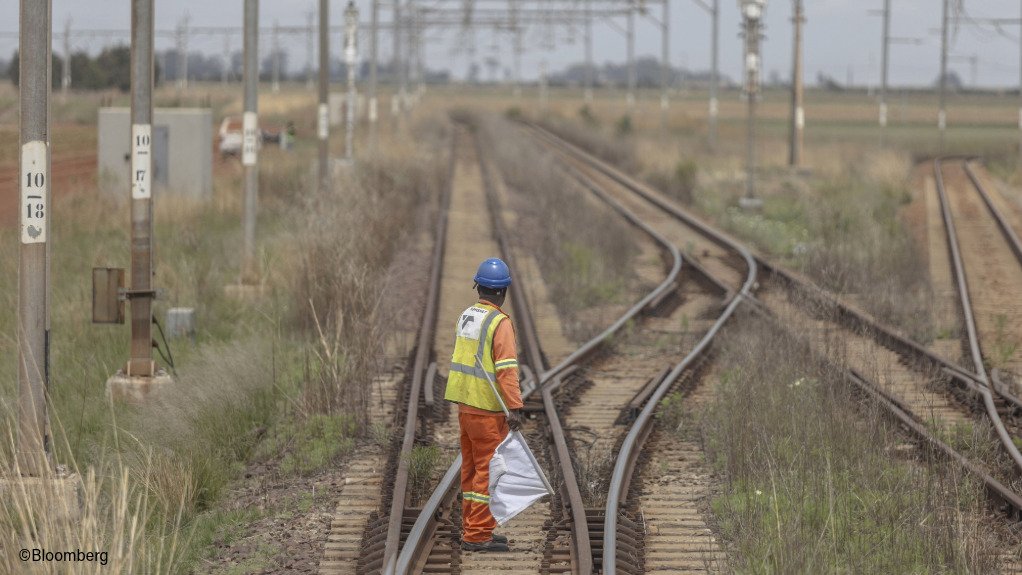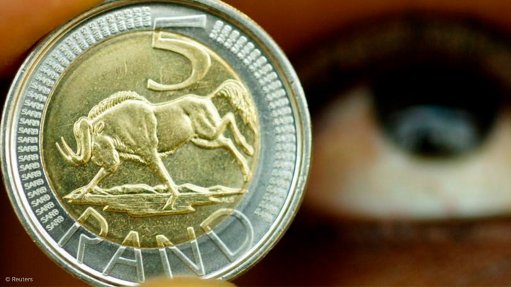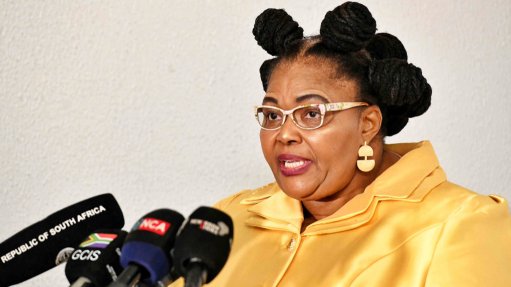South African coal, metal exporters to spend billions fixing rail
South African coal and iron-ore exporters aim to sign agreements with state-owned logistics company Transnet next month that could pave the way for them to spend billions of rand to help fix crucial rail lines and boost shipments.
Organisations representing firms including Glencore and a unit of Anglo American are negotiating the terms of the pacts with Transnet, said Ian Bird, head of transport and logistics for B4SA, a business group that’s partnering with the government to revive South Africa’s sub-standard transport and energy infrastructure and operations.
The collapse of freight-rail lines due to poor maintenance and theft of equipment saw coal exports plunge to a 30-year low of 48-million tons in 2023. Iron-ore railings slumped to the lowest in a decade. The government has agreed to allow private operators to run trains on the lines from about April to boost export income.
“We are now at a point where something has to be done,” Bird said in an interview. The state of the lines has an “impact on both Transnet Freight Rail and third-party operators,” he said.
The parties haven’t publicly disclosed the likely terms of the agreements, which should facilitate an infusion of private capital and expertise. Transnet, in a response to Bloomberg queries, put the cost of repairing the coal line over three years, at about R12.9-billion and the iron-ore line at about R9-billion.
Repairing all Transnet’s tracks, including those used to transport containers and manganese, would requite 64.5 billion rand over five years, Transnet said last year.
“The conclusion of the agreements with the customers is on track,” Transnet said. “The investment is required to get these lines back up to a standard at which we can move more volumes.”
Companies export iron ore from the Saldanha port on South Africa’s west coast, while they ship most coal from Richards Bay on the eastern seaboard.
The Ore Users Forum, which counts Anglo’s Kumba Iron Ore and Assmang among its members, declined to comment. Richards Bay Coal Terminal, the privately owned coal-export port whose shareholders include Glencore, Thungela Resources and Exxaro Resources, also didn’t comment.
The aim is to restore the lines “to near-enough maximum operational capacity,” Bird said. “It’s now a case of where the money will come from.”
He expects the Treasury to provide some clarity on funding for Transnet, which is deeply indebted, in next month’s national budget. Projected revenue the company earns from third parties will be lower than forecast because tariffs were roughly halved after negotiation, Bird added.
Independent entities have completed technical assessments of the work needed on the coal and iron-ore lines, and they will carry out further studies on the other routes.
Transnet’s own attempts to boost its volumes are stalling.
BELOW TARGET
At the meeting between representatives from the government, state companies, B4SA and President Cyril Ramaphosa last week, Transnet said it disclosed that total freight-rail volumes for the year to March 31 were up 5.3% from a year earlier, but about 7-million tons below target. The annual objective is 170-million tons. Derailment, theft and vandalism are to blame, it said.
The goal for the 2025/26 financial year is 193-million tons and for 2029/30 it is 250-million tons, about a fifth of which would be due to private operators and investment, a B4SA document from the meeting seen by Bloomberg showed. The group confirmed the authenticity of the document.
Processing of containers at Transnet’s ports will also miss a target of 4.4-million 20-foot equivalent units this financial year, with a throughput of 4.2-million containers compared with the previous year’s 4.1-million tons, the presentation showed and Transnet confirmed. The company has set the 2029-30 aim after private intervention at 5.4-million units, the presentation shows.
The rollout of new electricity-generation capacity and transmission lines last year was also 48% and 28% below target respectively, charts in the the presentation reveal.
Article Enquiry
Email Article
Save Article
Feedback
To advertise email advertising@creamermedia.co.za or click here
Press Office
Announcements
What's On
Subscribe to improve your user experience...
Option 1 (equivalent of R125 a month):
Receive a weekly copy of Creamer Media's Engineering News & Mining Weekly magazine
(print copy for those in South Africa and e-magazine for those outside of South Africa)
Receive daily email newsletters
Access to full search results
Access archive of magazine back copies
Access to Projects in Progress
Access to ONE Research Report of your choice in PDF format
Option 2 (equivalent of R375 a month):
All benefits from Option 1
PLUS
Access to Creamer Media's Research Channel Africa for ALL Research Reports, in PDF format, on various industrial and mining sectors
including Electricity; Water; Energy Transition; Hydrogen; Roads, Rail and Ports; Coal; Gold; Platinum; Battery Metals; etc.
Already a subscriber?
Forgotten your password?
Receive weekly copy of Creamer Media's Engineering News & Mining Weekly magazine (print copy for those in South Africa and e-magazine for those outside of South Africa)
➕
Recieve daily email newsletters
➕
Access to full search results
➕
Access archive of magazine back copies
➕
Access to Projects in Progress
➕
Access to ONE Research Report of your choice in PDF format
RESEARCH CHANNEL AFRICA
R4500 (equivalent of R375 a month)
SUBSCRIBEAll benefits from Option 1
➕
Access to Creamer Media's Research Channel Africa for ALL Research Reports on various industrial and mining sectors, in PDF format, including on:
Electricity
➕
Water
➕
Energy Transition
➕
Hydrogen
➕
Roads, Rail and Ports
➕
Coal
➕
Gold
➕
Platinum
➕
Battery Metals
➕
etc.
Receive all benefits from Option 1 or Option 2 delivered to numerous people at your company
➕
Multiple User names and Passwords for simultaneous log-ins
➕
Intranet integration access to all in your organisation





















